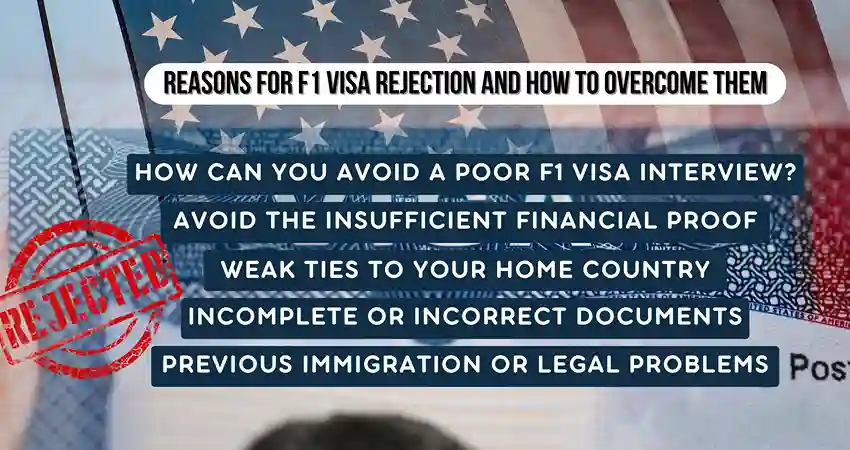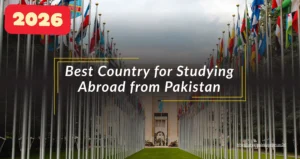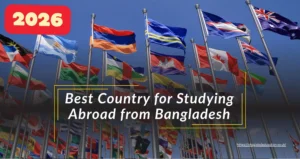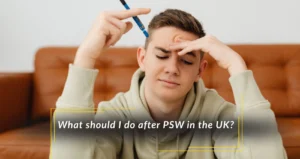The F-1 visa is the most common type of visa for international students who want to study full-time in the United States. Thousands of students apply for it every year, but not all are successful. Receiving an F1 visa rejection, or “refusal,” can be discouraging, especially after spending a year and money preparing documents and securing admission to a U.S. university. South Asian and African students are most likely to face these problems.
The good news? Most F1 visa rejections occur for very specific reasons that can be avoided with the right preparation. In this article, we will explain the most common reasons for rejection in simple language and show you how to avoid mistakes.
Table of Contents
ToggleWhat are the most common reasons for F1 visa rejection?
Below are the top reasons why F1 student visas are often denied at U.S. embassies and consulates around the world:
Poor Visa Interview Performance
The visa interview is the most important step in the F1 visa application process. Many students are rejected simply because they appear unconfident, do not understand the officer’s questions, or provide inconsistent and irrelevant answers.
For example, if you are asked, “Why did you choose this university?” and respond with something vague like “Because it’s good,” it creates doubt. Officers look for clarity, confidence, and honesty. Like any other country, the USA wants to accept international students, but there are so many problems with genuine students. Currently, students go to the USA, but then they don’t study and try to perform illegal activities. For this reason, we see so many rejections from the USA. However, they still welcome international students with thorough interviews and verifications.
How can you avoid a poor F1 visa interview?
- Practice common F1 visa interview questions.
- Speak clearly and in simple English.
- Keep your answers short and consistent with the information in your documents.
Insufficient Financial Proof
Studying in the U.S. is expensive, and the government wants to ensure that you can afford it. If you cannot provide sufficient financial documentation, your visa may be denied.
Officers will check that you have enough money to cover tuition, living expenses, books, health insurance, and travel costs. Before finalizing your bank statement, compare the total monthly costs listed in your offer letter. Also, prepare other related financial documents, such as proof of funds, to show where the money is coming from. One-time bank statements or questionable funding sources will raise red flags.
Avoid the insufficient financial proof problem for an F1 visa interview.
- Provide bank statements for at least three to six months, as required for a U.S. student visa.
- Show proof of income from sponsors, scholarships, or a family business.
- Be prepared to explain your financial sources during the interview, as this is one of the most common questions for a U.S. student visa.
Weak ties to your home country.
The U.S. officer must believe that you will return home after completing your studies, as the U.S. Embassy wants students to return to their home country after finishing their program. If they suspect that you intend to stay permanently, they will reject your visa application.
Ties to your home country may include family, property, a job offer, or future career plans. If you cannot explain your plans to return home, your case will look weak.
How to Avoid This
- Clearly explain how your degree will help you in your future career or your home country.
- Mention any family responsibilities or investments, such as working in your family business or taking care of your parents when you return home.
- Avoid saying things like “I want to live in the US forever” or “I intend to work at the biggest, most reputable company in the US.”
Incomplete or incorrect documents
Your visa will almost certainly be rejected if your documents are missing, inconsistent, or contain errors.
Common mistakes include providing incorrect information on the DS-160 form, having mismatched dates on the I-20 form, and making errors in financial documents.
How to Avoid This
- Triple-check all documents before submitting them.
- Ensure that all details, such as name, birth date, and financial numbers, are consistent.
- If you are unsure about anything, seek help from a professional or educational counselor. Consider STS Global Education for expert guidance.
Something about the course or university just doesn't seem right.
The U.S. Embassy will carefully review your study plan. If your chosen course of study does not align with your previous educational background or if your university has a poor reputation, your application may be denied.
For example, A student with a bachelor’s degree in physics who applies for a U.S. diploma in hospitality without providing a clear explanation may be questioned. Officers also verify that the school is accredited and recognized.
You can avoid this problem by choosing a program that aligns with your academic and career background. Apply to well-recognized, accredited universities. Be prepared to explain why the program is a good fit for your future.
Late Visa Application
Timing is critical. If your visa interview is scheduled too close to or after the program start date, you risk being rejected. The best way to avoid this problem is to apply for your visa at least two months before your program begins and start your university application three months before. If you receive a late appointment date, request an emergency appointment and provide valid proof.
Previous immigration or legal problems
Your F1 visa can be refused if you have broken immigration rules in the past (such as overstaying a visa) or have a criminal record. In this case, it is crucial to be completely honest about your past. If you have had issues in the past, prepare documents or legal explanations. For complex cases, seek help from an immigration attorney.
Technical Errors or Mistakes
Sometimes, rejections occur due to simple mistakes, such as typos, mismatches in your SEVIS ID, or errors made by the school. Avoid this by carefully reviewing every form before submitting it. Make sure your SEVIS fee is paid and recorded correctly.
Unclear Study Goals
The officer wants to know why you chose to study in the U.S. and how it fits into your career plan. If you cannot explain this clearly, it will look suspicious. Be prepared to explain why you chose the U.S. over another country to avoid this problem. The officer can also use this information to verify that you will return to your home country after graduating. Show how your course relates to your previous education and future job.
Family or Dependent Concerns
Failing to properly explain who will take care of your dependents (spouse/children) and how they will be supported could result in your visa being rejected. Include clear details about your dependents in your application to avoid this issue. Show financial proof if they will accompany you.
How to Avoid F1 Visa Rejection
- Apply early and prepare well.
- Practice the visa interview thoroughly.
- Provide clear financial proof.
- Show strong ties to your home country.
- Ensure documents are complete, accurate, and consistent.
- Be honest and confident during the interview.
Although F-1 visa rejections are common, they do not mean the end of your dream of studying in the United States. Most rejections occur due to avoidable mistakes, such as poor interview preparation, insufficient financial documentation, or vague plans. By being well-prepared, giving honest answers, and providing strong documentation, you can greatly improve your chances of success.
If you are still unsure, reach out to a professional counselor, immigration advisor, or even STS Global Education, which can guide you step by step.




